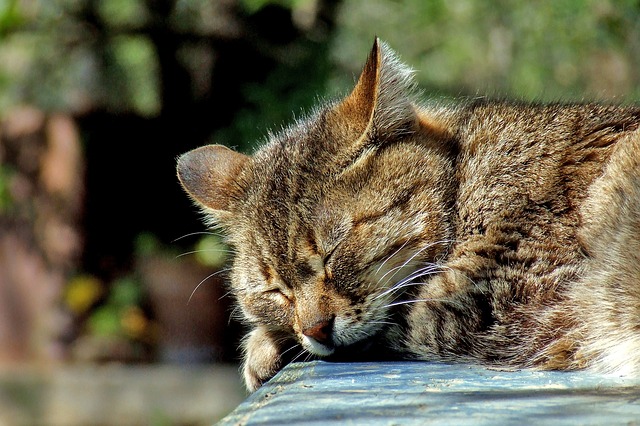I love cats! Big cats, small cats, cats with no hair! But I tend to have a soft spot for the cats that have been around a while. I’m talking senior cats! According to the Journal of American Animal Hospital Association, a cat is considered a senior if it’s around 7-10 years old.
Senior cats tend to mellow with age and are low maintenance. They don’t need as much attention and supervision as kittens do. As long as they have a comfy bed, food and water, they tend to be OK left alone during the day. Unlike kittens, they’re less likely to tear up the drapes, jump on the counters, or run through the house at 2:00 in the morning! Now, with that said, older cats still require mental and physical stimulation, so some good toys and puzzles, along with scratching posts and pad are appreciated.
Senior cats enjoy the quiet life; lounging, cuddling, and sleeping. This makes them a great companion for older folks. They also tend to do well with children, as they are more patient than kittens.
For all their great qualities, older cats tend to get overlooked at shelters. It’s easy to see why the cute, spunky kittens would get all the attention. But when you adopt an older kitty, you’re more likely to know what you’re getting. Older cats have predictable, developed personalities, unlike kittens that have a ways to go before they settle into their adult personality. You also have a better idea of what kind of health condition they may or may not have.
Senior cats do tend to have more health issues than the younger guys. In fact, about 90% of cats over 12 have arthritis, which can cause them to be less active. They may also suffer from dental disease. But, to be fair, dental disease can show up in cats as young as two. So it’s important for all kitties, regardless of age, to get regular dental exams. Kidney, thyroid, and liver disease are also conditions that can affect an older cat. According to veterinarian Dr. Marty Becker, a twice a year wellness visit can catch these issues early, which makes treatment more successful.
If you have a senior cat, be sure to feed him a high-quality cat food that is appropriate for his age. You may also consider fortifying his diet with the fatty acids DHA and EPA, which have shown to be beneficial to cats with mobility issues due to joint disease or arthritis. Also consider supplying a litter box with lower sides. Nice soft bedding or a bed made from orthopedic memory form are great for those long naps senior kitties like to take. And, to make things more convenient, place the litter box, bedding, food, water, and toys downstairs where they’re easily accessible.
Senior kitties are special and make wonderful pets. They still have life to live and a whole lot of love to give.


